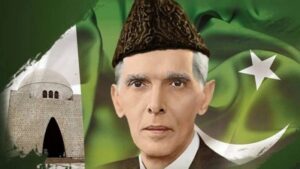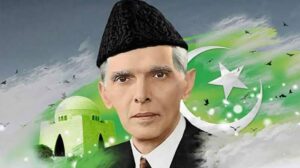From the World of Skills…!

Bridging Dreams and Demand: The Emerging Power of Skills in Pakistan
In a world defined by accelerating change, the race is no longer just between the educated and uneducated — it is between the skilled and unskilled. Across continents, from Berlin to Bangkok, one truth is gaining ground: academic degrees alone no longer guarantee employment or prosperity. It is skills — adaptable, industry-aligned, globally recognized skills — that are now the real currency of opportunity.
Pakistan, a country with a youth bulge and over 60% of its population under 30, is standing at a unique crossroads. On one side lies unemployment, underemployment, and outmigration without direction. On the other side lies a burgeoning global demand for skilled workers — in construction, healthcare, AI, digital marketing, caregiving, renewable energy, and beyond.
But are we ready to bridge this gap?
The answer lies in the silent transformation taking place in Pakistan’s Technical and Vocational Education and Training (TVET) sector. Institutions like the National Vocational and Technical Training Commission (NAVTTC) have begun reshaping the way young Pakistanis prepare for the workforce. The focus is shifting from classroom theory to competency-based training, from closed rooms to global platforms, and from rote learning to real-world application.
One standout initiative is the Recognition of Prior Learning (RPL) framework, allowing experienced but uncertified workers — from carpenters to tailors — to gain official recognition and international mobility. Another, the recently approved Pakistan Skills Impact Bond (PSIB), is pioneering an outcomes-based financing model that leverages private investment to upskill youth in high-demand sectors, linking payments to job placement and long-term employment.
These reforms are not just policy shifts — they represent a mindset change. A realisation that skills are not second to education; they are its practical expression. That gender, geography, or economic background should no longer determine a person’s access to a meaningful livelihood.
Globally, countries like Germany, Singapore, and South Korea have long harnessed skill-based systems to power their economies. In contrast, much of South Asia is still fighting the stigma that skills are only for those who “couldn’t make it academically.” That narrative is changing — slowly, but surely — and Pakistan is contributing to that change.
However, the challenge is vast. Climate change is creating new green jobs while displacing others. Artificial Intelligence is making some roles obsolete while giving rise to entirely new ones. For a country like Pakistan, the real question is no longer whether to invest in skills — but how fast and how equitably we can do so.
The world doesn’t wait for the unprepared. Gulf states are hiring trained HVAC technicians, caregivers, and coders. European countries are opening up work visas for plumbers, welders, and automation technicians. These aren’t low-end jobs anymore — they are middle-income livelihoods with dignity, stability, and global mobility.
We must ensure that a young woman in Balochistan or a boy from interior Sindh can access these global doors — not with a passport alone, but with the power of a skillset the world recognizes.
As we look ahead, Pakistan’s future will be defined not just by infrastructure or exports, but by its ability to harness its human capital. And that capital will only yield returns if it is skilled, certified, and connected to real opportunity.
Because in today’s economy, skills are not just tools — they are tickets; to employment, to empowerment, to equality and to the world.


